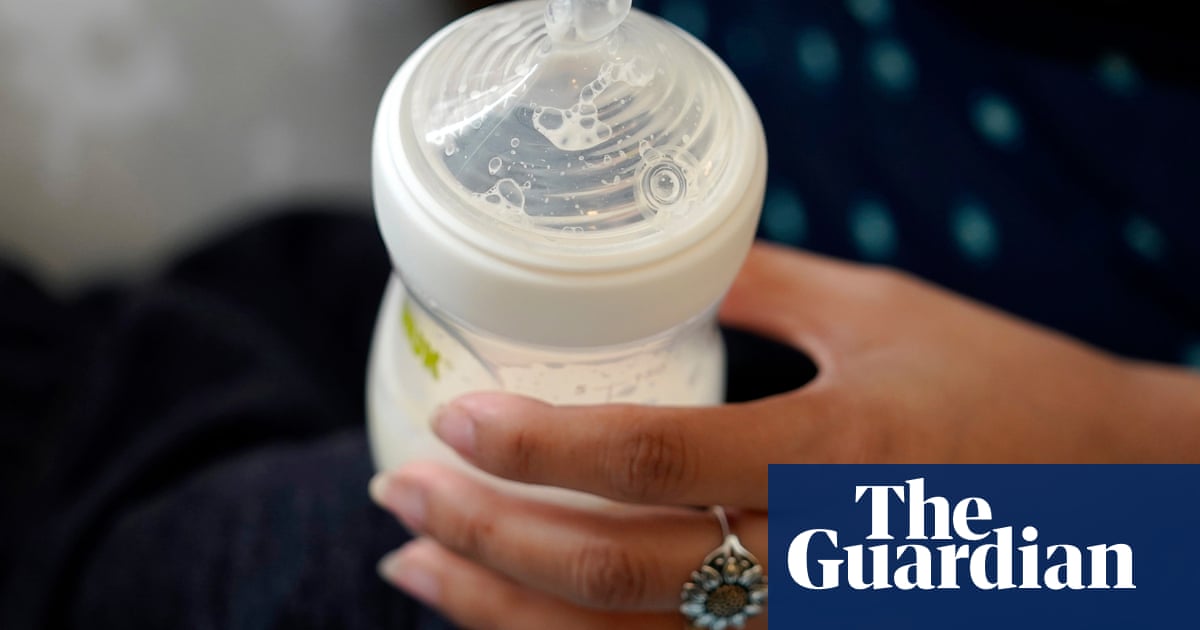
Most makers of popular brands in areas such as baby milk, baked beans, mayonnaise and pet food fuelled greedflation by putting up prices faster than their costs rose, the competition regulator has found.
The latest release from the Competition and Markets Authority (CMA) in its review of the grocery market concluded that over the past two years about three-quarters of branded suppliers with products in those sectors increased their profits by raising prices more than their costs increased.
“Food price inflation has put huge strain on household budgets, so it is vital competition issues aren’t adding to the problem,” said Sarah Cardell, the chief executive of the CMA. “While in most cases the leading brands have raised prices more than their own cost increases, own-label products are generally providing cheaper alternatives.”
The CMA said that of the 10 product categories it examined in depth, it had the biggest concerns over baby milk and was launching a further investigation into that market, which will report its findings next year.
It said that the price of infant formula had increased by 25% in the last two years, with two companies accounting for 85% of market share. Unlike other products examined, it found little evidence of parents switching to cheaper branded options and very limited availability of own-brand options.
However, the CMA estimated that if families shopped around they could make savings of more than £500 in the first year of a child’s life.
“Unlike other products examined, there is little evidence of parents switching to cheaper branded options as prices have risen and very limited availability of own-brand alternatives,” Cardell said.
“We’re concerned that parents may not always have the right information to make informed choices and that suppliers may not have strong incentives to offer infant formula at competitive prices. We will investigate this further and consider whether changes to regulations are necessary to ensure parents can get the best deal possible.”
According to market share figures, Danone, which makes the Cow & Gate and Aptamil brands, has a 71% share of the UK baby formula market.
Nestlé, which owns SMA and Little Steps, has a 14% share, while Kendamil, the only British maker of baby milk products, has a 9% share.
HiPP is the fourth biggest player in the market, with a 5% share.
Food price inflation continues to run at historically high levels despite falling to 4.6% in October, with the consumer group Which? estimating that supermarket prices have increased by more than a quarter over the last two years.
The watchdog’s latest release, like its initial investigation into retail competition in the groceries sector published in July, found that most of the food inflation since early 2021 had been caused largely by passing rising input costs on to consumers, and that overall profit margins had fallen across most branded manufacturers since 2021.
However, it identified several product lines where price rises of branded goods had outstripped cost increases. The findings will increase accusations that brands have made the cost of living crisis worse by raising prices unnecessarily to protect profit, a phenomenon known as greedflation.
Which? said cash-strapped consumers would be shocked to learn of the profit-increasing tactics used by the big brands, and raised concerns that shoppers reliant on smaller-sized shops and convenience stores did not have the choice of budget-priced options.
“This will be shocking for many people who have been struggling to deal with food price inflation,” said Sue Davies, the head of food policy at Which?. “The evidence reinforces Which?’s concerns that shoppers relying on convenience store branches of the big supermarkets, which rarely stock the cheapest own-brand ranges, may struggle to find more affordable food.”
The CMA said that it also intended to launch an investigation into loyalty scheme pricing in January, where supermarkets only offer deals to customers who sign up to their scheme.
“We have seen an increase in the use of loyalty scheme pricing by supermarkets, which means that price promotions are only available to people who sign up for loyalty cards,” Cardell said. “This raises a number of questions about the impact of loyalty scheme pricing on consumers and competition.”
Which?’s Davies said the investigation was positive for consumers as loyalty card deals were not always the bargain that supermarkets advertise them to be.
“A recent Which? investigation found these deals aren’t always as they seem,” she said. “In September we asked the regulator to look at whether supermarkets could be hiking ‘regular’ prices to make it appear that loyalty scheme customers are getting a better deal than they really are.”
https://news.google.com/rss/articles/CBMicGh0dHBzOi8vd3d3LnRoZWd1YXJkaWFuLmNvbS9idXNpbmVzcy8yMDIzL25vdi8yOS9sZWFkaW5nLWdyb2NlcnktYnJhbmRzLWZ1ZWxsaW5nLWdyZWVkZmxhdGlvbi11ay1yZWd1bGF0b3ItZmluZHPSAQA?oc=5
2023-11-29 11:04:00Z
2645311671
Tidak ada komentar:
Posting Komentar